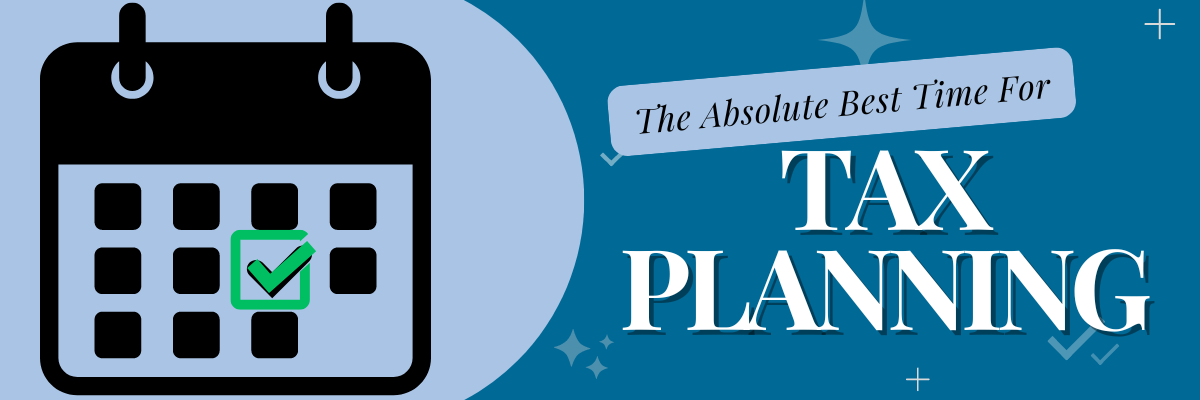Preparing for Q4: Tax Tips for Small Business Owners
As the year inches closer to its end, small business owners are not only gearing up for the holiday season but also for the annual tax season. While taxes may not be the most exciting aspect of entrepreneurship, they are a crucial part of your business's financial well-being. Fortunately, with some strategic planning, you can maximize deductions, take advantage of credits, and optimize your finances before the calendar flips to the next year. Here are some actionable tax tips to help small business owners prepare for Q4.
1. Organize Your Financial Records
Before diving into tax planning, ensure your financial records are in impeccable order. This includes all income and expense documents, invoices, receipts, and bank statements. Use accounting software or hire a professional if necessary to streamline this process. Organized records not only save time but also reduce the likelihood of errors during tax filing.
2. Review Your Business Structure
Consider your business structure (e.g., sole proprietorship, LLC, S-corp) and evaluate whether it's still the most tax-efficient choice for your situation. The structure can have a significant impact on your tax liability. Consult with a tax advisor or attorney to determine if a change is warranted.
3. Maximize Deductions
Small business owners have a plethora of deductions available to them. Some common deductions include:
- Home Office Deduction: If you work from home, you may be eligible for this deduction, which allows you to deduct a portion of your rent or mortgage, utilities, and home maintenance costs.
- Business Expenses: Ensure you're claiming all legitimate business expenses, such as office supplies, equipment, software subscriptions, and travel expenses.
- Vehicle Expenses: If you use a vehicle for business purposes, you can deduct related expenses. Keep a mileage log to track business-related trips.
- Healthcare Costs: If you're self-employed, you may be able to deduct a portion of your health insurance premiums.
- Retirement Contributions: Contribute to a retirement plan, such as a SEP-IRA or a Solo 401(k), to reduce taxable income while saving for the future.
4. Take Advantage of Tax Credits
Tax credits can significantly reduce your tax liability. Some credits that may apply to small businesses include:
- Small Business Health Care Tax Credit: If you provide health insurance to your employees, you may qualify for this credit.
- Work Opportunity Tax Credit (WOTC): If you hire individuals from certain target groups, you may be eligible for this credit.
- Research and Development (R&D) Tax Credit: If your business engages in qualifying research activities, you could benefit from this credit.
5. Consider Equipment Purchases
If your business needs new equipment or machinery, consider making these purchases before the end of the year. The Section 179 deduction allows you to deduct the full cost of qualifying equipment in the year it's placed in service, up to a specified limit.
6. Monitor Estimated Tax Payments
Stay on top of your estimated tax payments. Review your financial performance throughout the year, and adjust your payments accordingly to avoid penalties for underpayment. A tax professional can help you with this calculation.
7. Plan for Retirement
Contributing to a retirement account not only helps secure your financial future but can also reduce your taxable income. Explore options like a Simplified Employee Pension (SEP) IRA, Simple IRA, or Solo 401(k) and maximize your contributions within the legal limits.
8. Seek Professional Guidance
Navigating the complexities of tax planning and compliance can be challenging. A certified tax advisor or CPA can provide personalized guidance, ensuring you take full advantage of all tax opportunities and stay compliant with tax laws.
9. Stay Informed
Tax laws change frequently, so staying informed is crucial. Subscribe to newsletters, attend webinars, and follow reputable tax sources to keep up with the latest updates and tax-saving strategies.
While taxes can be a daunting task for small business owners, they don't have to be overwhelming. By following these tax tips and staying proactive, you can better prepare for Q4 and set your business up for a financially successful year ahead. Remember, tax planning isn't a one-size-fits-all endeavor, so seek professional guidance to tailor your strategy to your unique circumstances. With careful planning, you can reduce your tax liability and keep more of your hard-earned money in your business.
Share this article...










